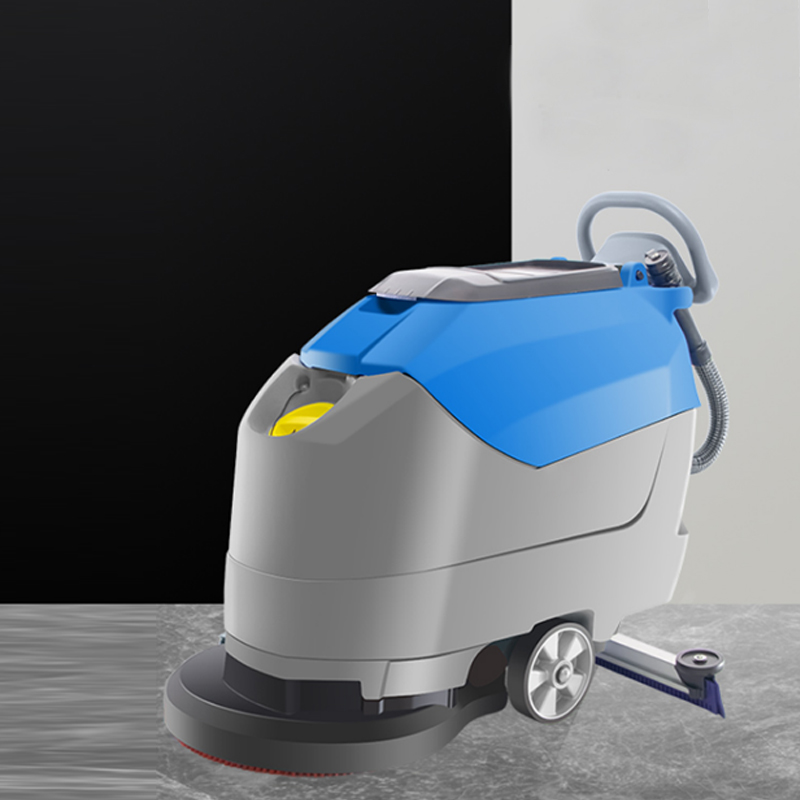Why Rotational Molding Is Preferred for Manufacturing Automatic Floor Cleaning Machine housings
 Feb 27,2024
Feb 27,2024

Why Rotational Molding Is Preferred for Manufacturing Automatic Floor Cleaning Machine housings?
Automatic floor cleaning machines, also known as robotic vacuum cleaners, have seen a surge in popularity in recent years due to their convenience and efficiency. The shell or housing of these devices serves a vital role in safeguarding internal components, maintaining structural integrity, and enhancing the overall aesthetics of the product. When it comes to manufacturing the shell for automatic floor cleaners, rotational molding, or rotomolding, surpasses other manufacturing processes due to its numerous advantages. The ability to create complex shapes, custom colors, cost-effectiveness, durability, mold-in graphics, design freedom, and weight savings are just a few reasons why the industry has widely adopted rotational molding to meet both cosmetic and performance requirements.

1. Uniform Wall Thickness
One of the primary benefits of using rotational molding for automatic floor cleaning machine shells is the capability to achieve a uniform wall thickness throughout the product. This is especially crucial for housings that need to withstand impacts and ensure structural integrity. Rotational molding distributes the plastic material evenly across the mold, resulting in consistent wall thickness and minimizing the risk of weak points or stress concentrations.
2. Creation of Complex Shapes
Rotational molding enables the production of complex shapes and designs that are difficult to achieve with other manufacturing processes. The ability to mold intricate geometries, including curved surfaces and unique aesthetic features, provides designers with greater flexibility in creating visually appealing and functional products. This is particularly advantageous for automatic floor cleaning machine housings, which often require a combination of sleek lines and ergonomic design elements to enhance the user experience.
3. Material Flexibility
Rotational molding can be utilized with a wide array of plastic materials, offering manufacturers the flexibility to select the most suitable material based on the product's requirements. This includes materials with specific properties, such as high durability, resistance to chemicals, or improved thermal insulation, which are essential for the performance and longevity of automatic floor cleaners. The ability to choose the appropriate material for the shell ensures that the product can withstand the demands of everyday use and provide reliable performance.
4. Cost-Effective Production
Rotational molding is a cost-effective manufacturing process, particularly for larger or complex products like automatic floor cleaner shells. The process is less labor-intensive and requires fewer tooling costs compared to other methods, such as injection molding. This efficiency can lead to significant savings in production costs, allowing manufacturers to offer competitive pricing without compromising on quality.
5. Durability and Corrosion Resistance
Rotational molded floor scrubber enclosures offer excellent durability and resistance to corrosion. The seamless and uniform wall thickness produced by the process ensures structural integrity and longevity. This makes rotational molded enclosures suitable for demanding environments, such as commercial and industrial settings, where floor scrubbers are frequently used.
6. Lightweight Design
The ability to produce lightweight components is another advantage of rotational molding. This is particularly beneficial for floor scrubber designs as lighter machines are easier to maneuver and reduce operational costs. Rotational molding enables the use of lightweight materials, contributing to improved maneuverability and reduced energy consumption.
7. Customization and Flexibility
Rotational molding allows for a high degree of customization and flexibility in the design of floor scrubber enclosures. The process can accommodate a wide range of colors, textures, and surface finishes, enabling businesses to create unique and visually appealing products that stand out in the market. This flexibility also allows for the production of customized enclosures to meet specific customer requirements or adapt to unique application needs.
8. Environmental Benefits
Rotational molding is an environmentally friendly manufacturing process, as it typically uses less energy and produces less waste than other methods. The ability to recycle and reuse scrap materials further contributes to its sustainability. This aligns with the growing trend towards environmentally friendly manufacturing methods and helps businesses meet the increasing demands of eco-conscious consumers and regulatory bodies.
By utilizing this innovative manufacturing process, Light Venus provides bespoke rotational molding services to fabricate advanced housings that improve the performance and dependability of automatic floor cleaning machines. We invite you to explore our website to gain further insights into our custom rotational molding services. Should you require any support in the development of your product, please do not hesitate to contact us.
 Tel: 0086-13632687993
Tel: 0086-13632687993  Email: roto@lightvenus.com
Email: roto@lightvenus.com

 Home
Home Resin Material Requirements for Rotational Molding Process
Resin Material Requirements for Rotational Molding Process  You May Also Like
You May Also Like



 Tel
Tel
 Email
Email
 Address
Address








